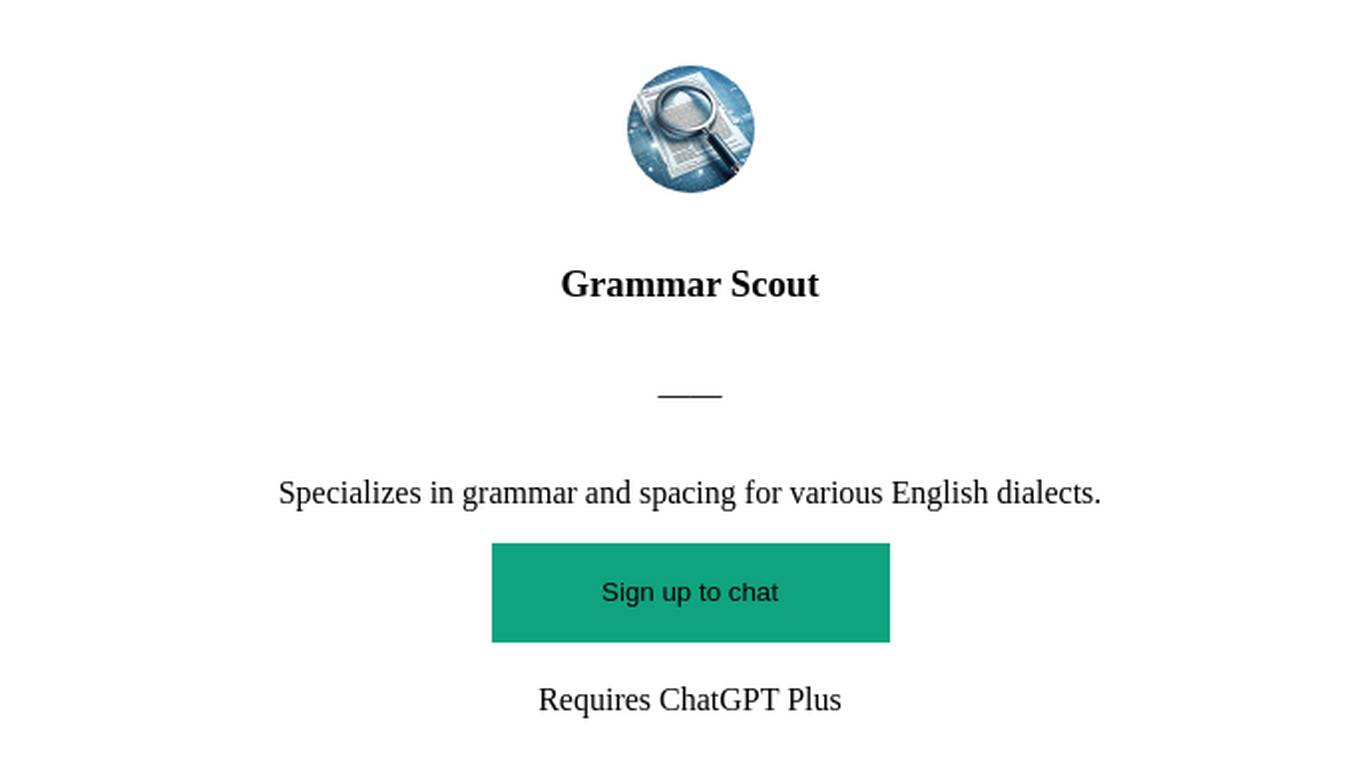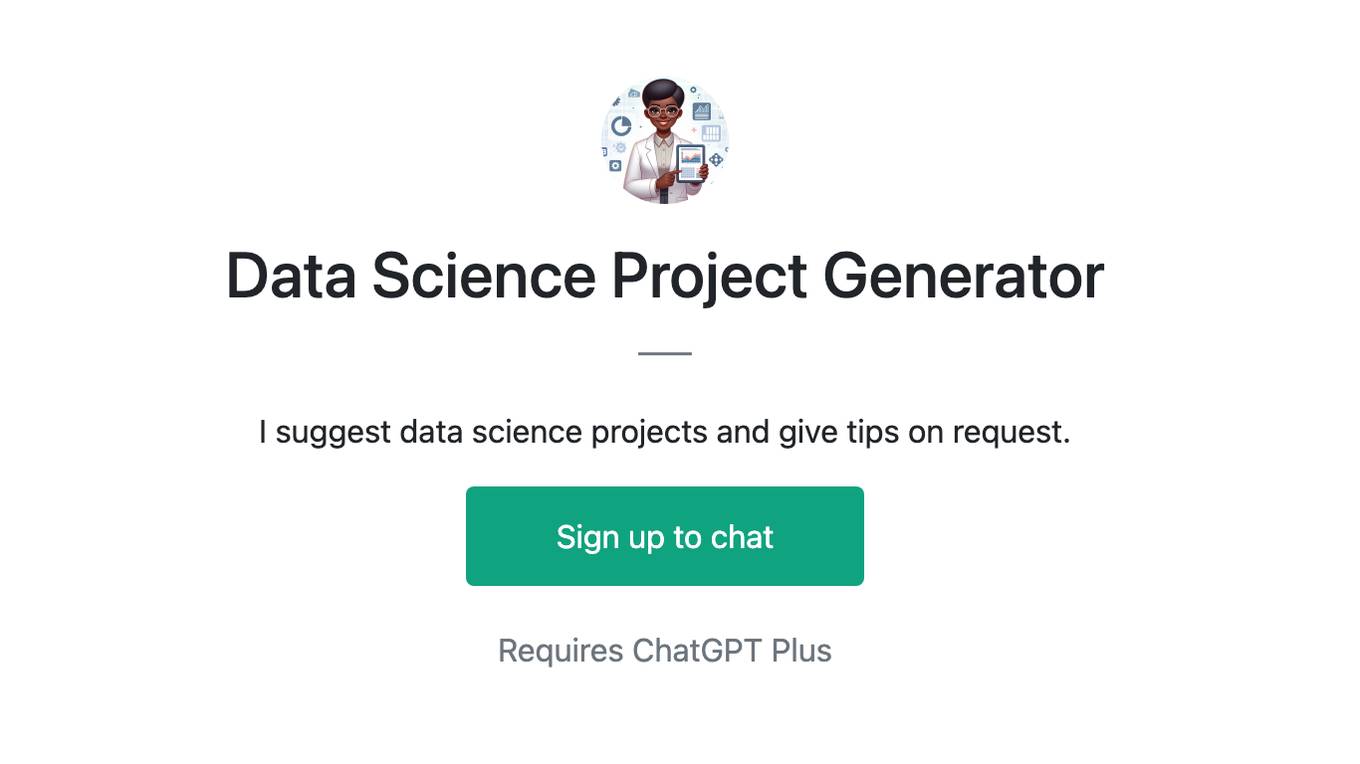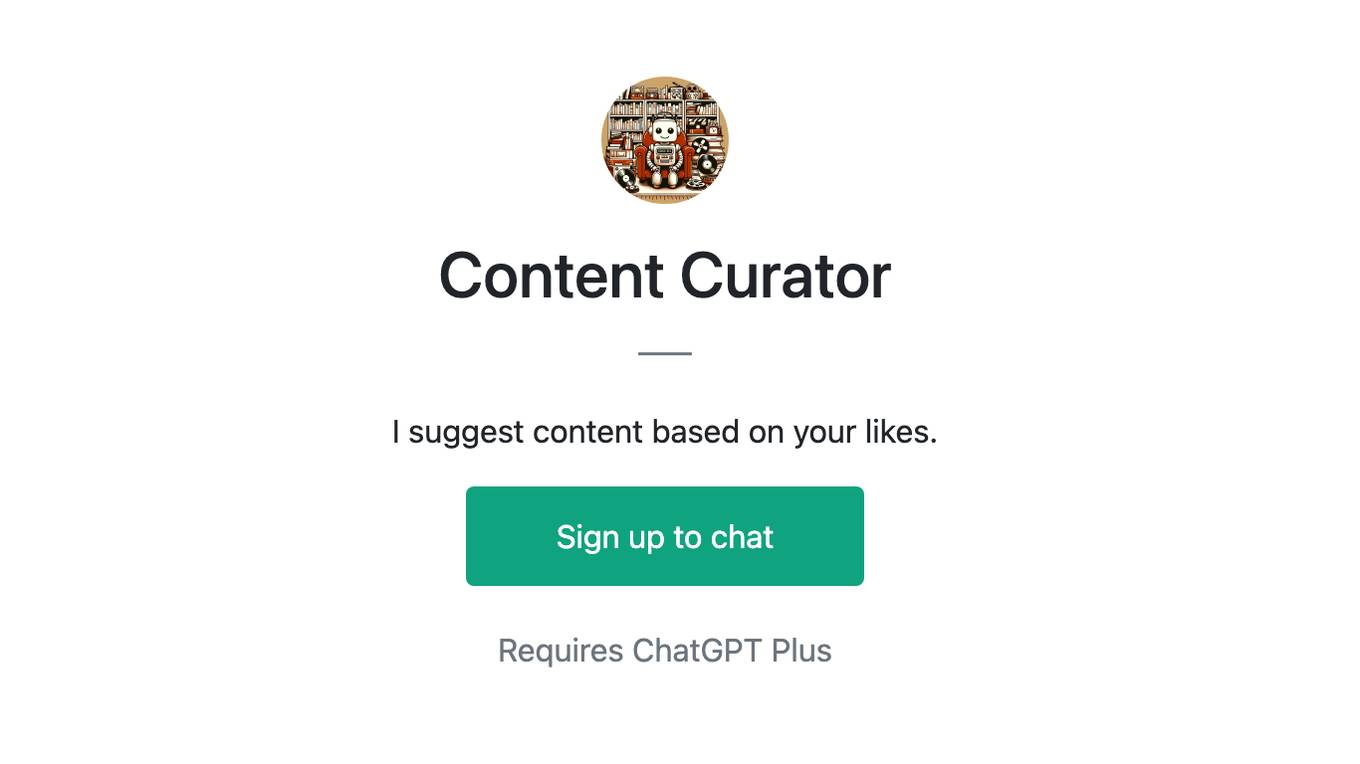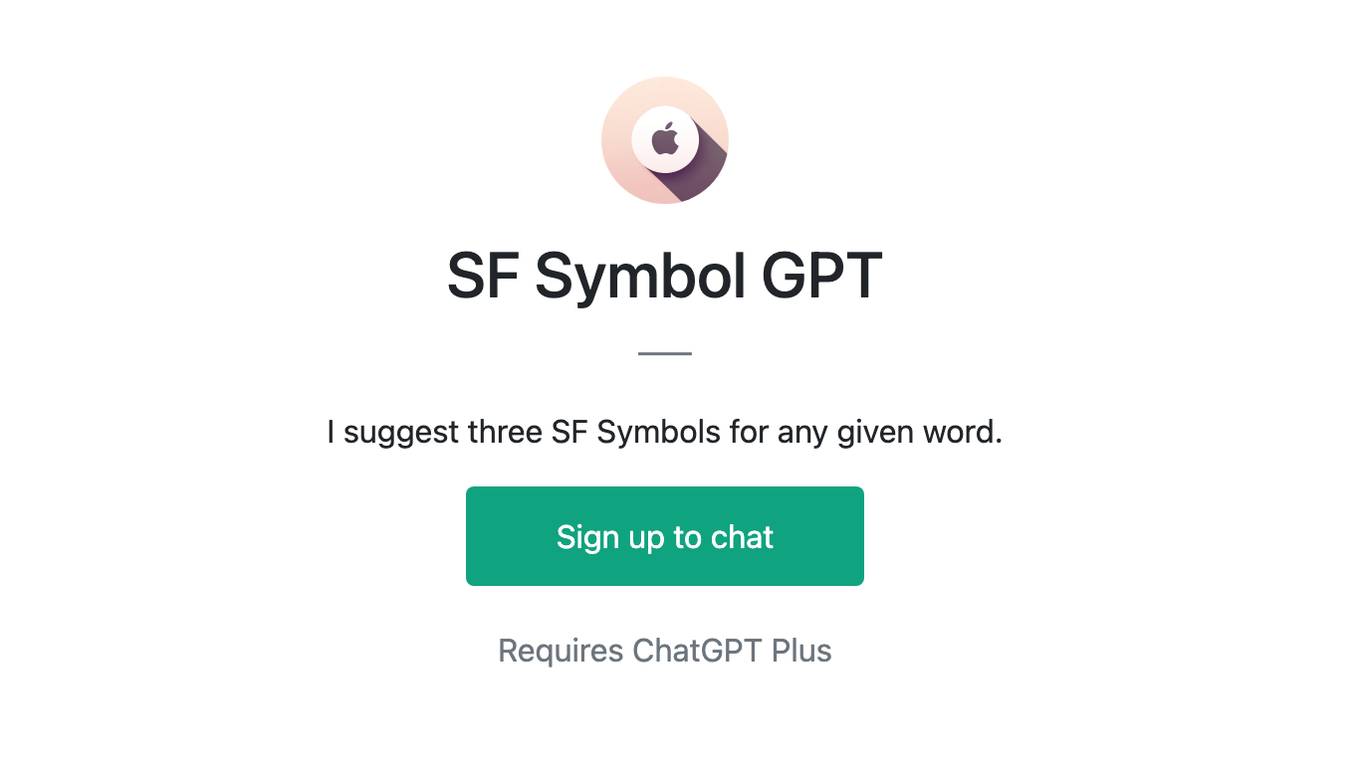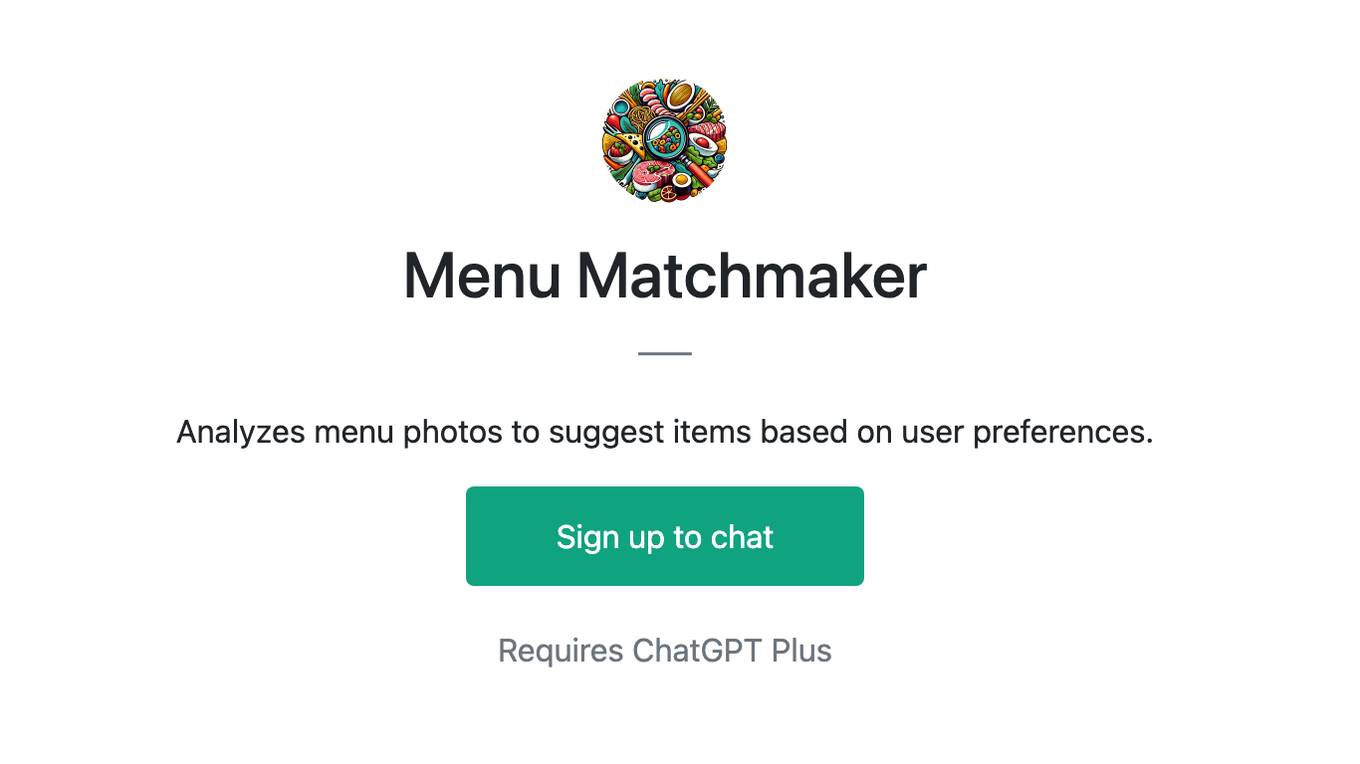Best AI tools for< Suggest Synonyms >
20 - AI tool Sites
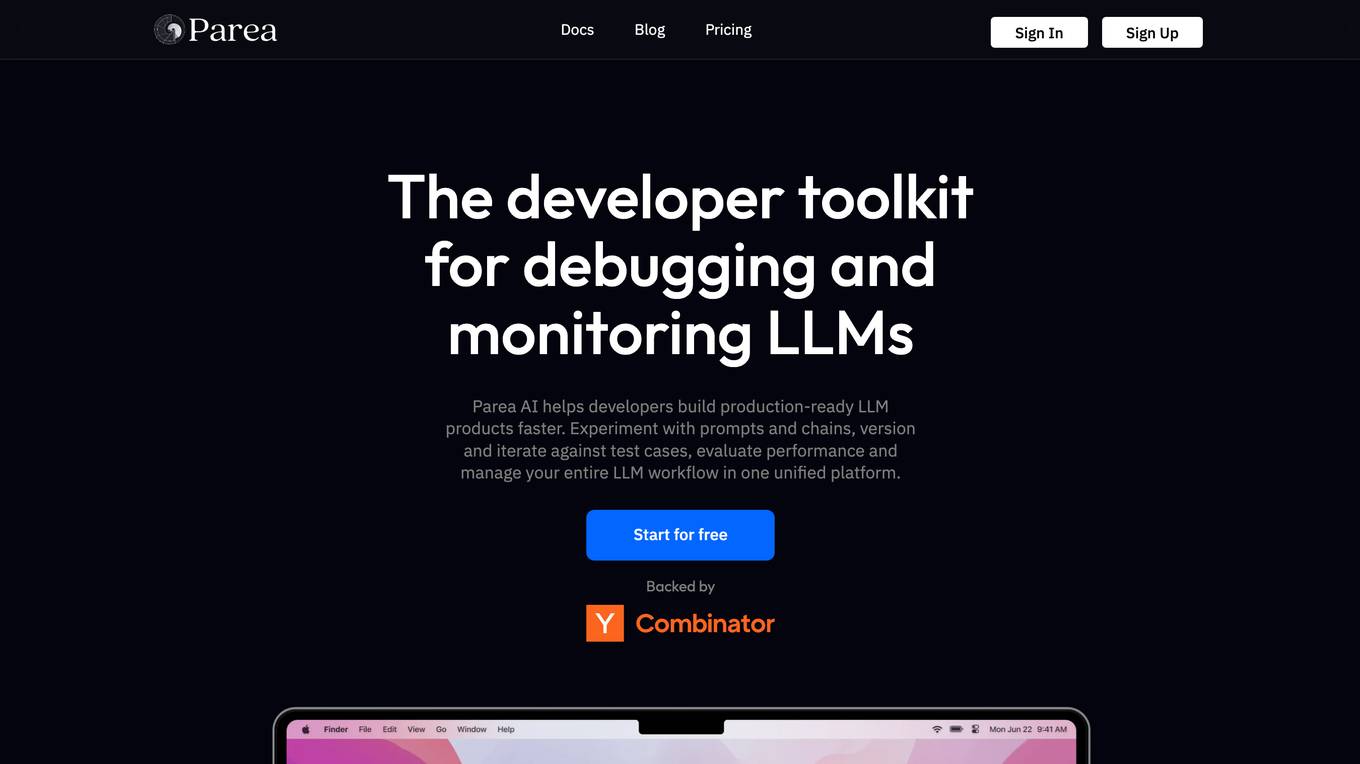
Parea AI
Parea AI is an AI-powered writing assistant that helps you write better, faster, and more efficiently. It can help you with a variety of writing tasks, including generating text, translating languages, and checking grammar and spelling.

Suggest AI
Suggest AI is a website created by @KShivendu that provides AI-powered suggestions. The website aims to assist users by offering intelligent recommendations based on their input. Users can explore the demo video to understand how the tool works and how it can help them in various scenarios.

Suggest.Gift
Suggest.Gift is an AI-powered tool designed to assist users in finding the perfect gift for their loved ones. By leveraging the latest AI technology, the tool analyzes input scenarios related to events, relationships, hobbies, and preferences to provide personalized gift suggestions. Users can bid farewell to the stress of gift-giving and rely on the tool to discover ideal presents effortlessly. The platform aims to enhance the gift-giving experience by utilizing artificial intelligence to streamline the process and ensure satisfaction for both gift givers and recipients.
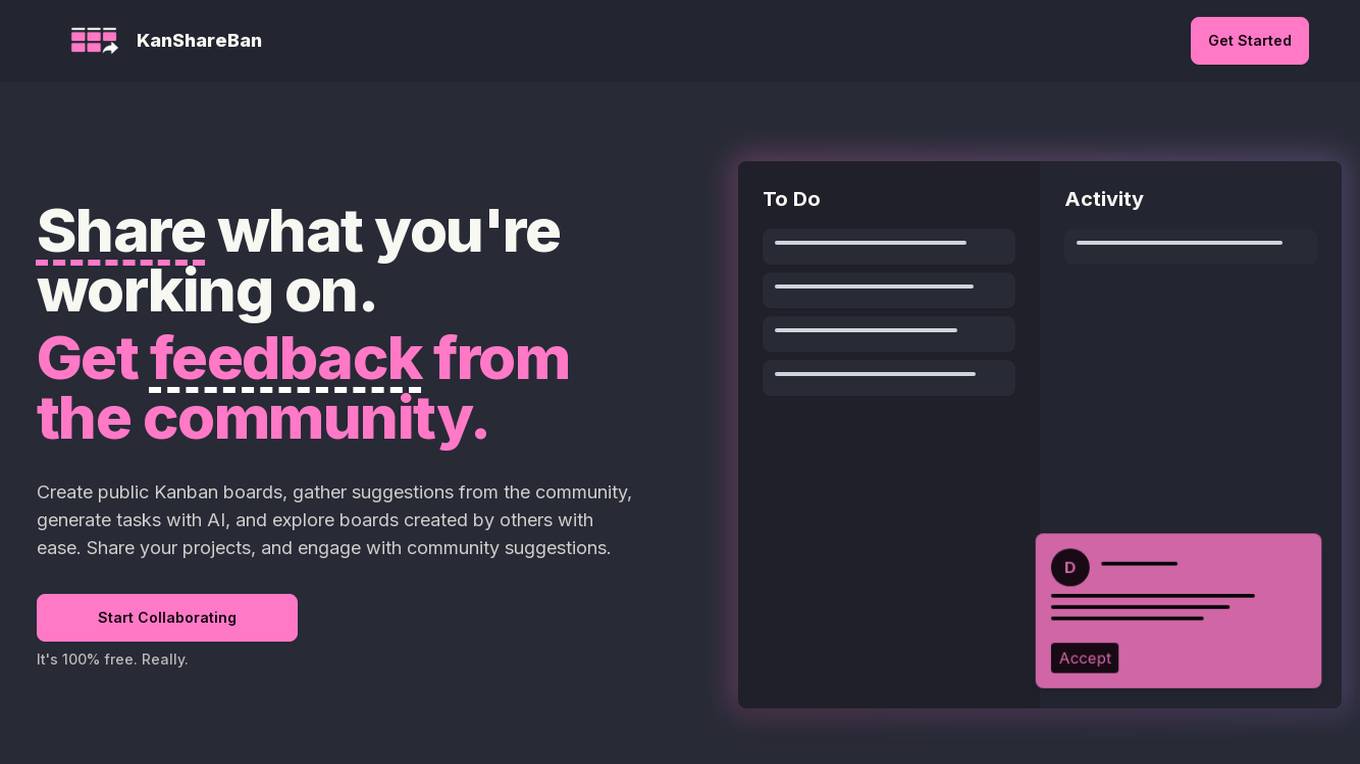
KanShareBan
KanShareBan is an AI-powered platform that allows users to share their projects, receive feedback from the community, create public Kanban boards, gather suggestions, and generate tasks with AI. Users can explore boards created by others, engage with community suggestions, and collaborate with creative individuals. The platform aims to streamline project planning and task management by leveraging artificial intelligence.

v0 Report
v0 Report is an advanced AI Document Generator that allows users to effortlessly create, customize, and manage professional-quality documents. The tool is designed to automate the writing process, enhance workflow productivity, and elevate the quality of documents for students, researchers, and professionals. With features like AI writing research capabilities, user-friendly interface, and cost-effective writing generation, v0 Report aims to revolutionize document creation through artificial intelligence technology.
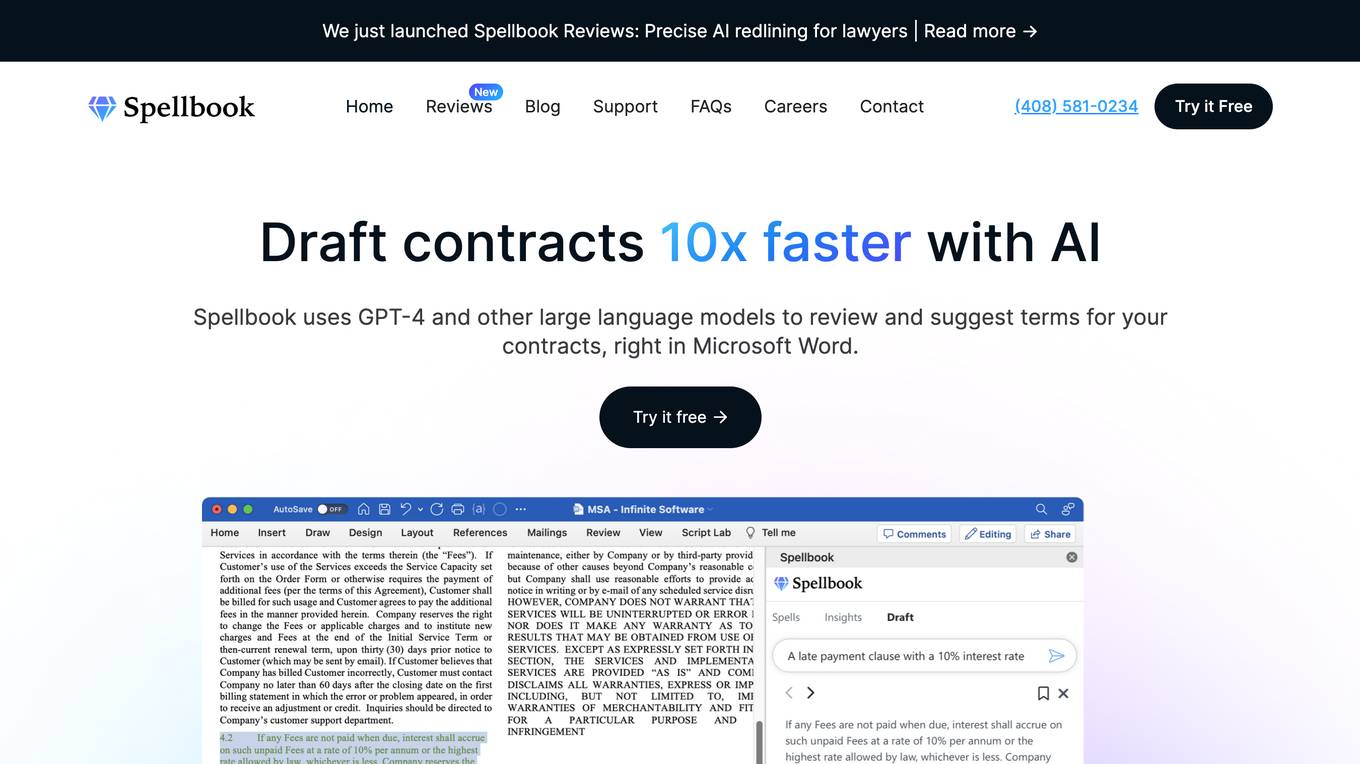
Spellbook
Spellbook is a comprehensive AI tool designed for commercial lawyers to review, draft, and manage legal contracts efficiently. It offers features such as redline contract review, drafting from scratch or saved libraries, quick answers to complex questions, comparing contracts to industry standards, and multi-document workflows. Spellbook is powered by OpenAI's GPT-4o and other large language models, providing accurate and reliable performance. It ensures data privacy with Zero Data Retention agreements, making it a secure and private solution for law firms and in-house legal teams worldwide.
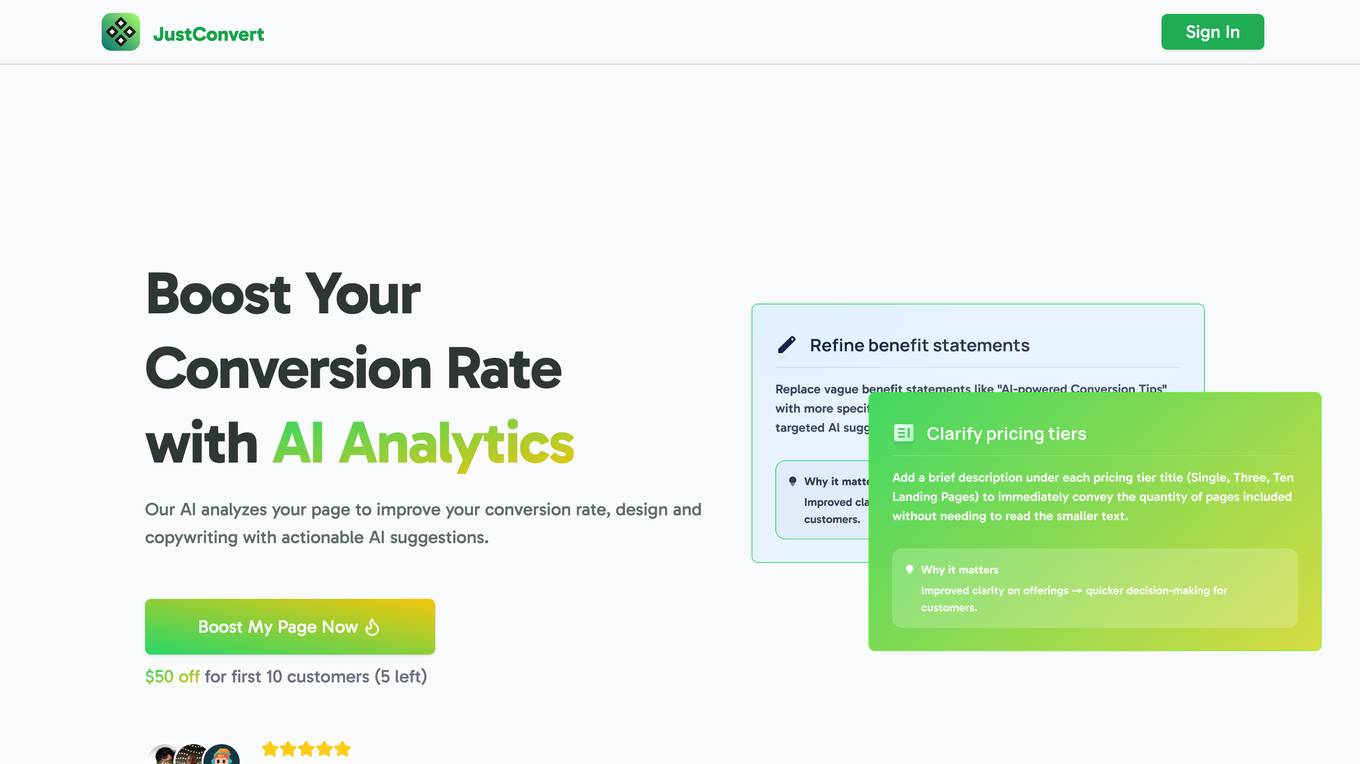
JustConvert
JustConvert is an AI-powered conversion optimization tool that analyzes your website to provide actionable suggestions for improving your conversion rate, design, and copywriting. It is designed to be easy to use and affordable, even for small businesses and startups. With JustConvert, you can quickly and easily identify areas for improvement on your website and get specific recommendations on how to fix them. This can lead to a significant increase in your conversion rate, which can mean more sales, leads, or signups for your business.

ReachifyMe
ReachifyMe is an AI-powered LinkedIn post generator that helps users create high-quality LinkedIn posts in under 7 minutes. The tool provides users with ready-made post ideas, viral post templates, and a content editor to help them craft posts that stand out in the crowded LinkedIn landscape. ReachifyMe also offers a content planner that allows users to save and schedule their posts, as well as track their performance.
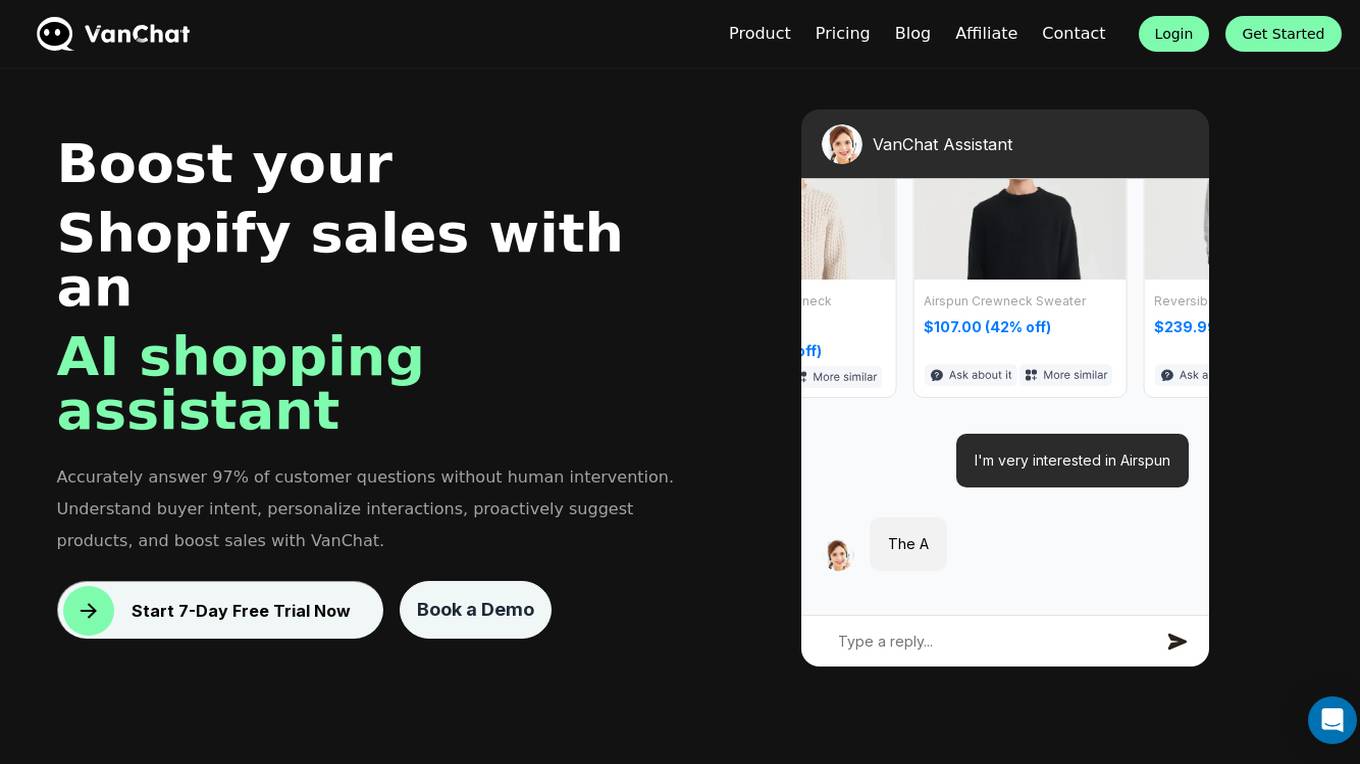
VanChat
VanChat is an AI shopping assistant designed to boost Shopify sales by accurately answering customer questions, understanding buyer intent, personalizing interactions, suggesting products, and ultimately increasing sales. It automates tasks like order checking and updating, offers personalized product recommendations, and proactively engages customers to drive purchases. VanChat continuously learns from store data in real-time to provide accurate responses and tailored suggestions. The platform aims to enhance user satisfaction, improve customer service, and increase revenue for online businesses.
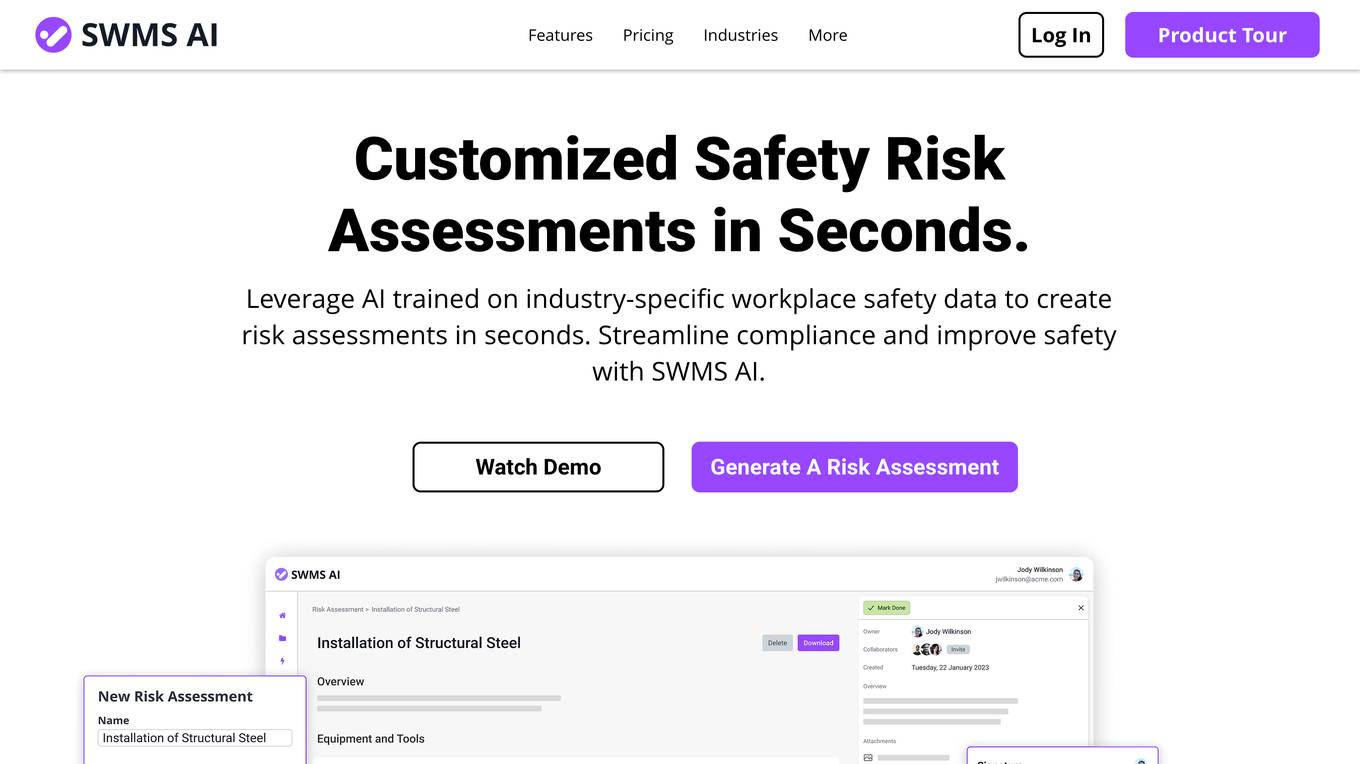
SWMS AI
SWMS AI is an AI-powered safety risk assessment tool that helps businesses streamline compliance and improve safety. It leverages a vast knowledge base of occupational safety resources, codes of practice, risk assessments, and safety documents to generate risk assessments tailored specifically to a project, trade, and industry. SWMS AI can be customized to a company's policies to align its AI's document generation capabilities with proprietary safety standards and requirements.

Parity
Parity is the world's first AI SRE tool designed to assist on-call engineers working with Kubernetes. It acts as the first line of defense by conducting investigations, determining root causes, and suggesting remediation before the engineer even opens their laptop. With features like Root Cause Analysis in Seconds, Intelligent Runbook Execution, and the ability to chat directly with the cluster, Parity streamlines incident response and enhances operational efficiency.
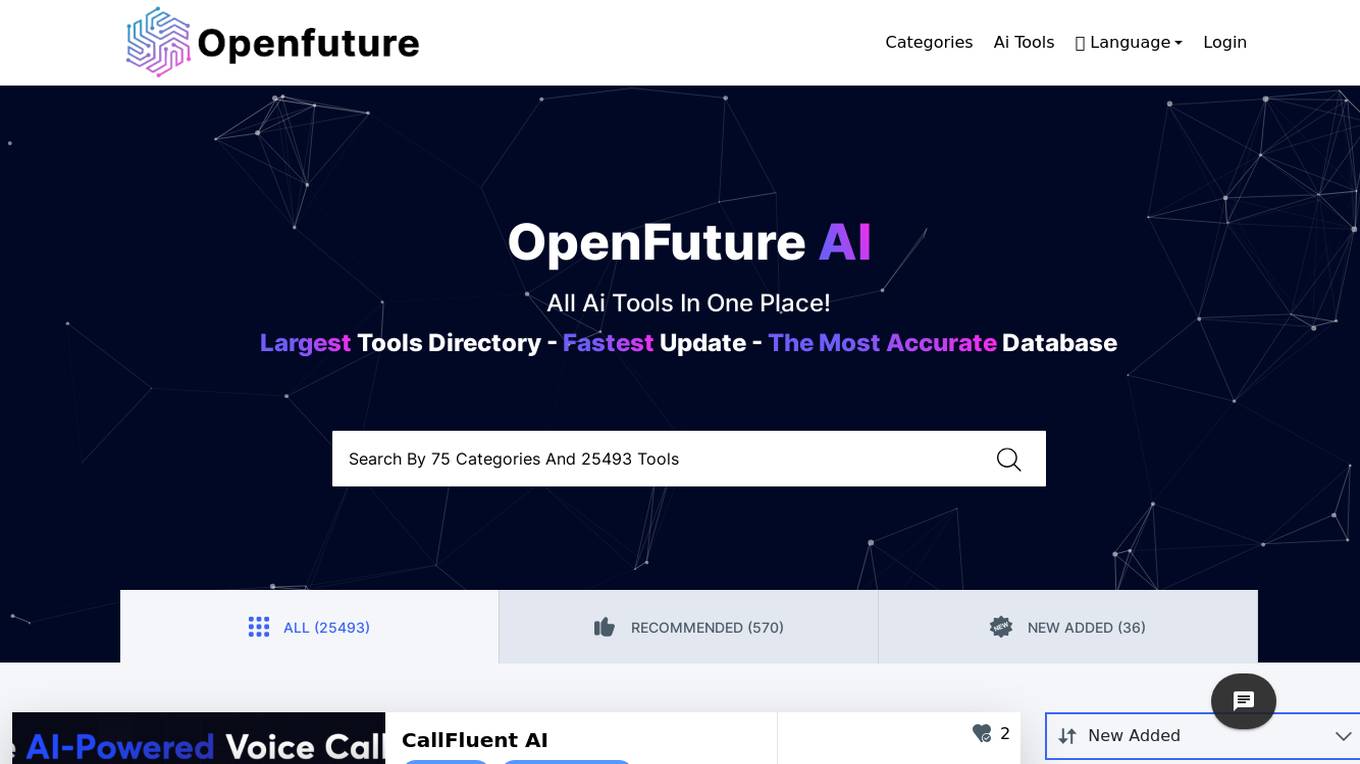
OpenFuture
OpenFuture is the world's largest AI Tools Directory in 2024, offering a comprehensive collection of AI applications across various categories such as 3D generator, aggregators, AI detection, art generator, audio editing, and more. Users can explore a wide range of AI-powered tools to enhance productivity, streamline tasks, and improve efficiency in different domains. The platform serves as a valuable resource for individuals and businesses looking to leverage artificial intelligence technology for various purposes.

Podcast.ai
Podcast.ai is an AI-powered podcast that generates episodes entirely using artificial intelligence. The podcast explores new topics weekly and allows listeners to suggest topics, guests, and hosts for future episodes. It caters to machine learning enthusiasts, individuals seeking a fresh take on favorite topics, and those interested in listening to voices from the past revived through AI technology.

Naro
Naro is an AI-powered sales knowledge platform that helps marketers identify trends and content gaps by analyzing sales conversations. It proactively suggests the right content to sellers, increases content utilization, and integrates conversations and content seamlessly. Naro also connects with existing tools to provide data-driven sales insights and improve content discoverability. With Naro, users can improve content efficacy, discover gaps and trends in sales interactions, automatically answer sales questions, and track content utilization by account and prospect.
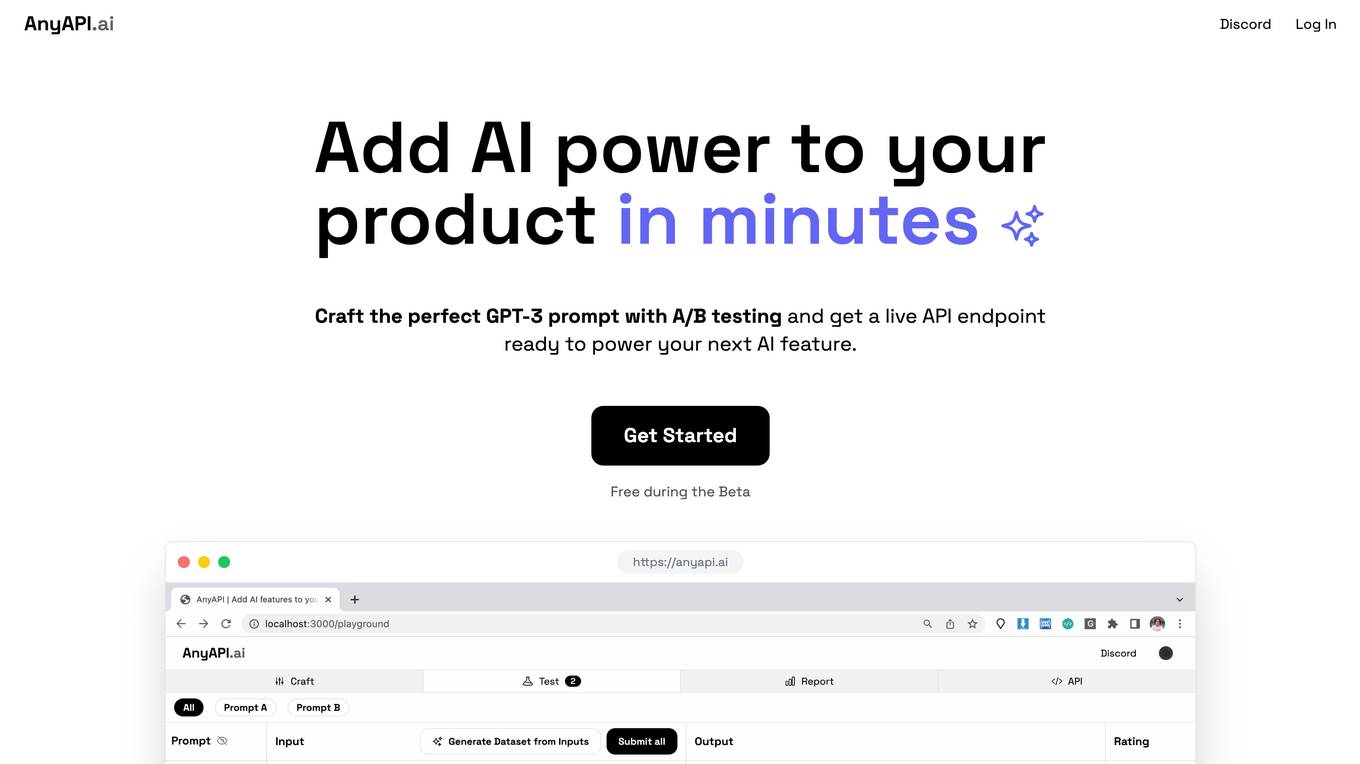
AnyAPI
AnyAPI is an AI tool that allows users to easily add AI features to their products in minutes. With the ability to craft the perfect GPT-3 prompt using A/B testing, users can quickly generate a live API endpoint to power their next AI feature. The platform offers a range of use cases, including turning emails into tasks, suggesting replies, and retrieving plain text JSON. AnyAPI is designed to streamline the integration of AI capabilities into various products and services, making it a valuable tool for developers and businesses seeking to enhance their offerings with AI technology.

Your Perfect Presents
Your Perfect Presents is an AI-powered gift ideas generator that helps users find unique and personalized gift suggestions for any occasion. By leveraging advanced algorithms and machine learning technology, the tool analyzes user preferences and recipient characteristics to provide tailored gift recommendations. With a user-friendly interface, users can easily navigate through a wide range of gift options, making the process of gift-giving hassle-free and enjoyable. Whether you're looking for a birthday present, anniversary gift, or holiday surprise, Your Perfect Presents is your go-to solution for thoughtful and creative gift ideas.
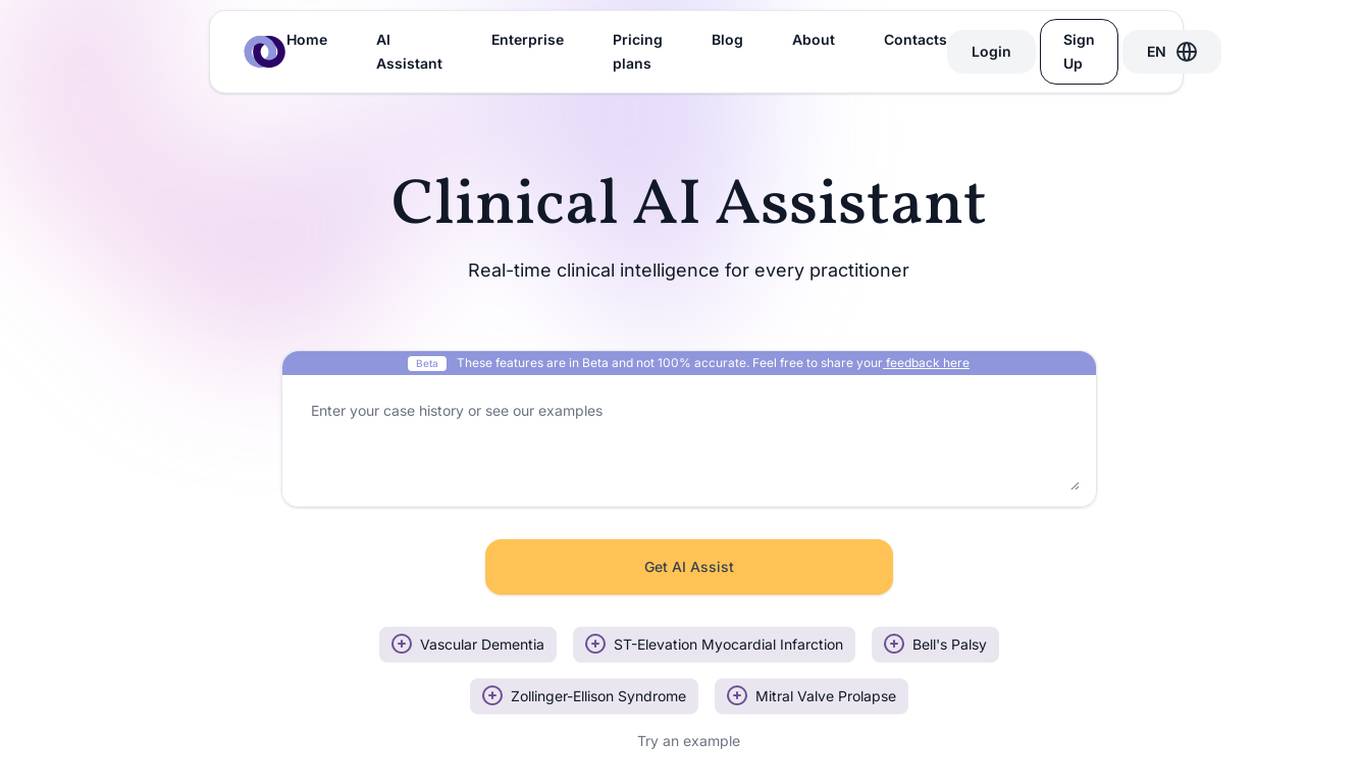
Medcol.io
Medcol.io is a clinical AI assistant designed to support healthcare professionals in making informed decisions by providing evidence-based recommendations and insights. The platform leverages advanced algorithms and medical data analysis to assist in diagnosing diseases, suggesting treatment plans, and predicting patient outcomes. With a user-friendly interface and real-time updates, Medcol.io aims to streamline the clinical decision-making process and improve patient care.
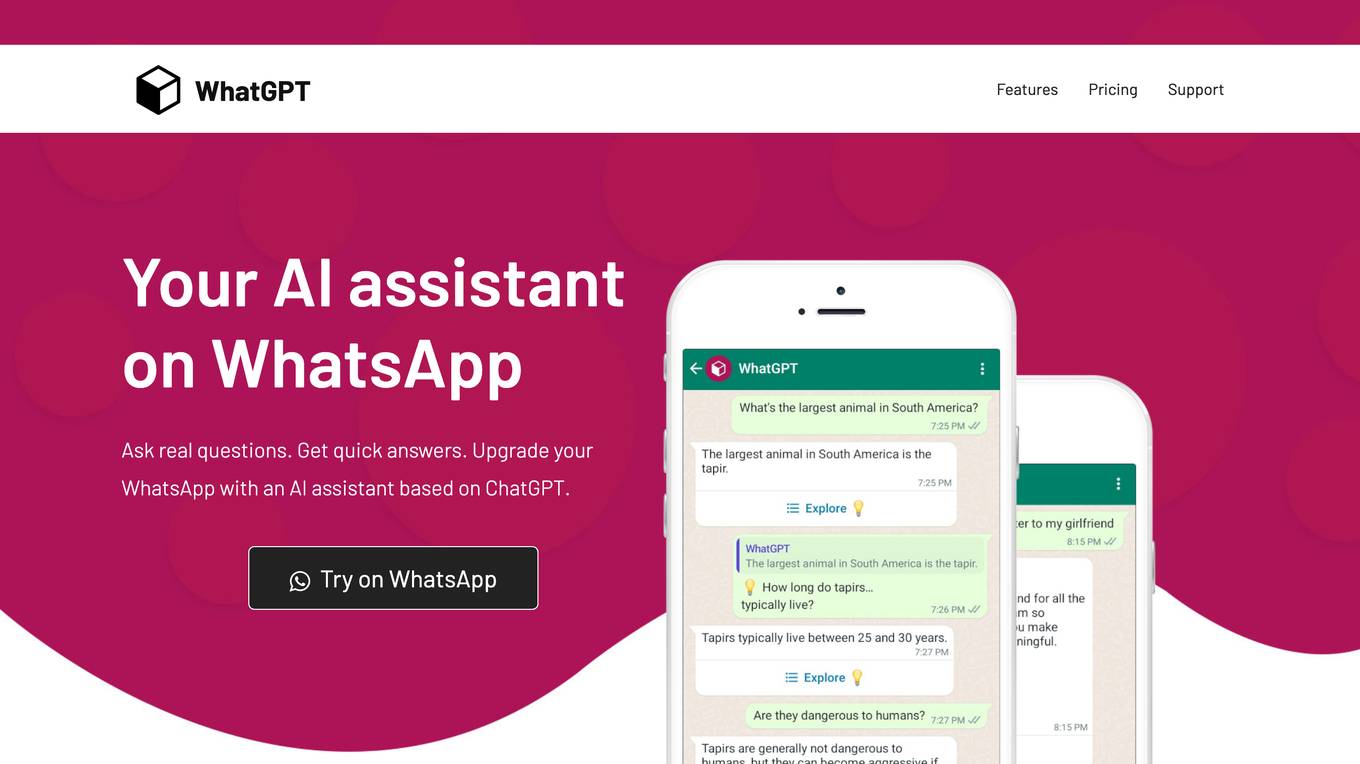
WhatGPT
WhatGPT is an AI assistant that integrates with WhatsApp, providing quick and concise answers to questions, suggesting quick replies, generating web links for further research, and offering 24/7 support. It is free to use, with a paid subscription option for additional features.
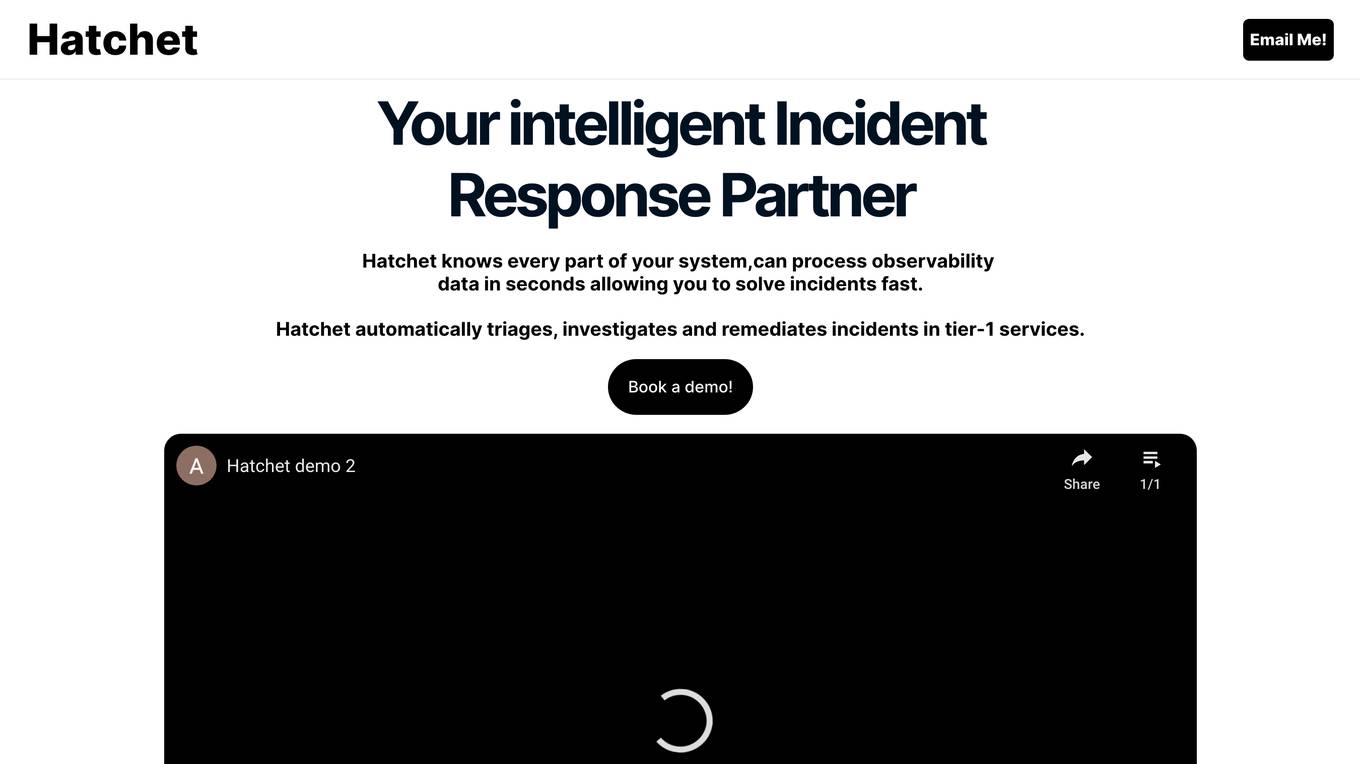
Hatchet
Hatchet is an AI companion designed to assist on-call engineers in incident response by providing intelligent insights and suggestions based on logs, communications channels, and code analysis. It helps save time and money by automating the triaging and investigation process during critical incidents. The tool is built by engineers with a focus on data security, offering self-hosted deployments, permissions, audit trails, SSO, and version control. Hatchet aims to streamline incident resolution for tier-1 services, enabling faster response and potential problem resolution.
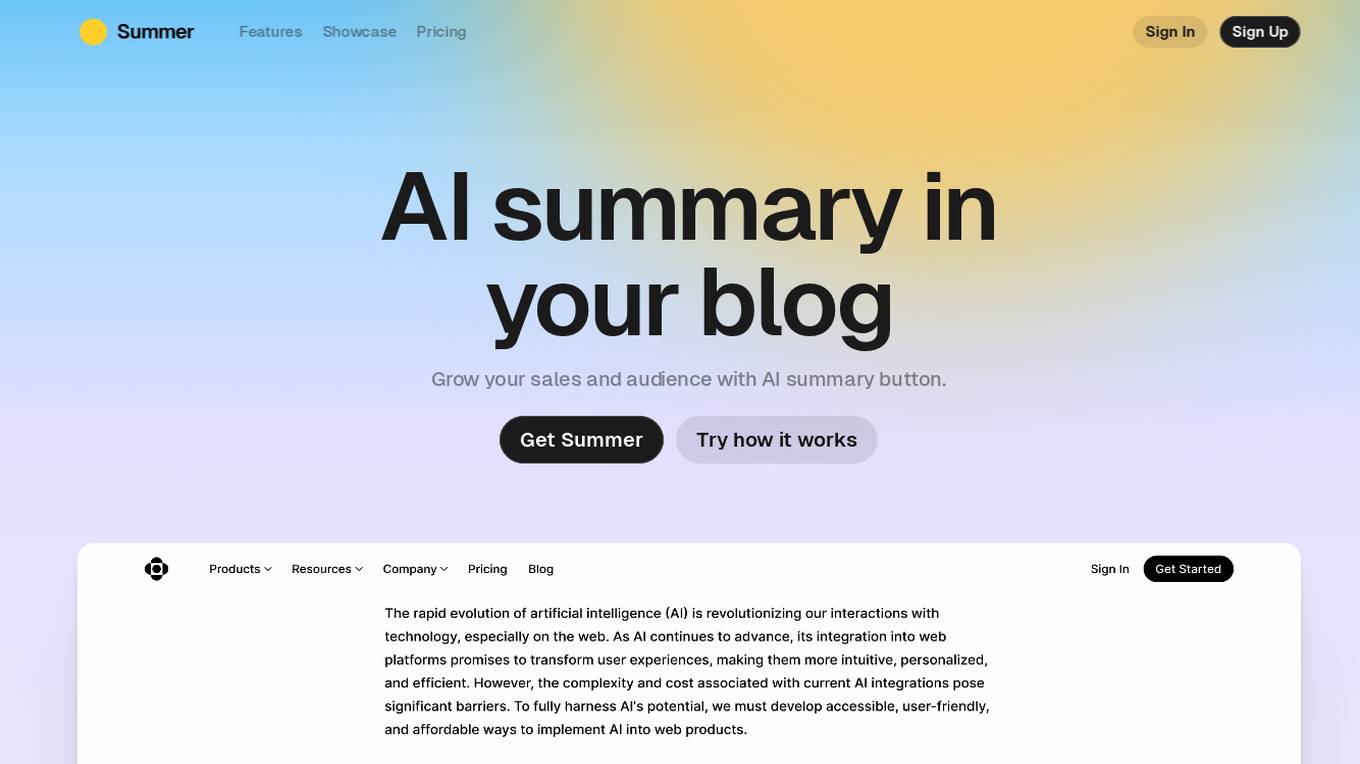
Summer AI
Summer AI is an AI tool designed to help bloggers and website owners enhance their content by providing short summaries, context, and relevant product suggestions. It offers features such as creating summaries, suggesting products, providing detailed statistics on user behavior, and improving reading time speed. With Summer AI, users can easily connect with their audience, generate more leads, and improve the overall user experience on their websites.
0 - Open Source AI Tools
20 - OpenAI Gpts
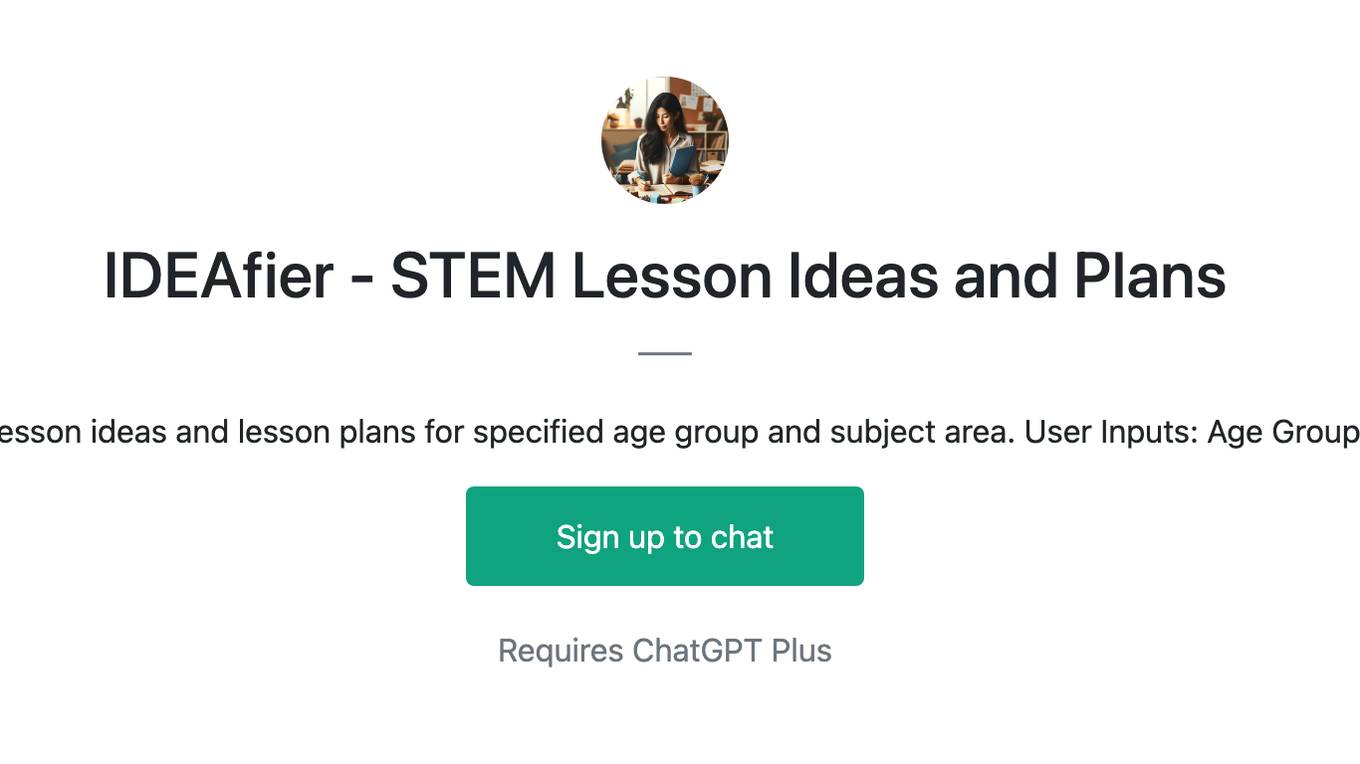
IDEAfier - STEM Lesson Ideas and Plans
Suggest STEM lesson ideas and lesson plans for specified age group and subject area. User Inputs: Age Group, Subject Area
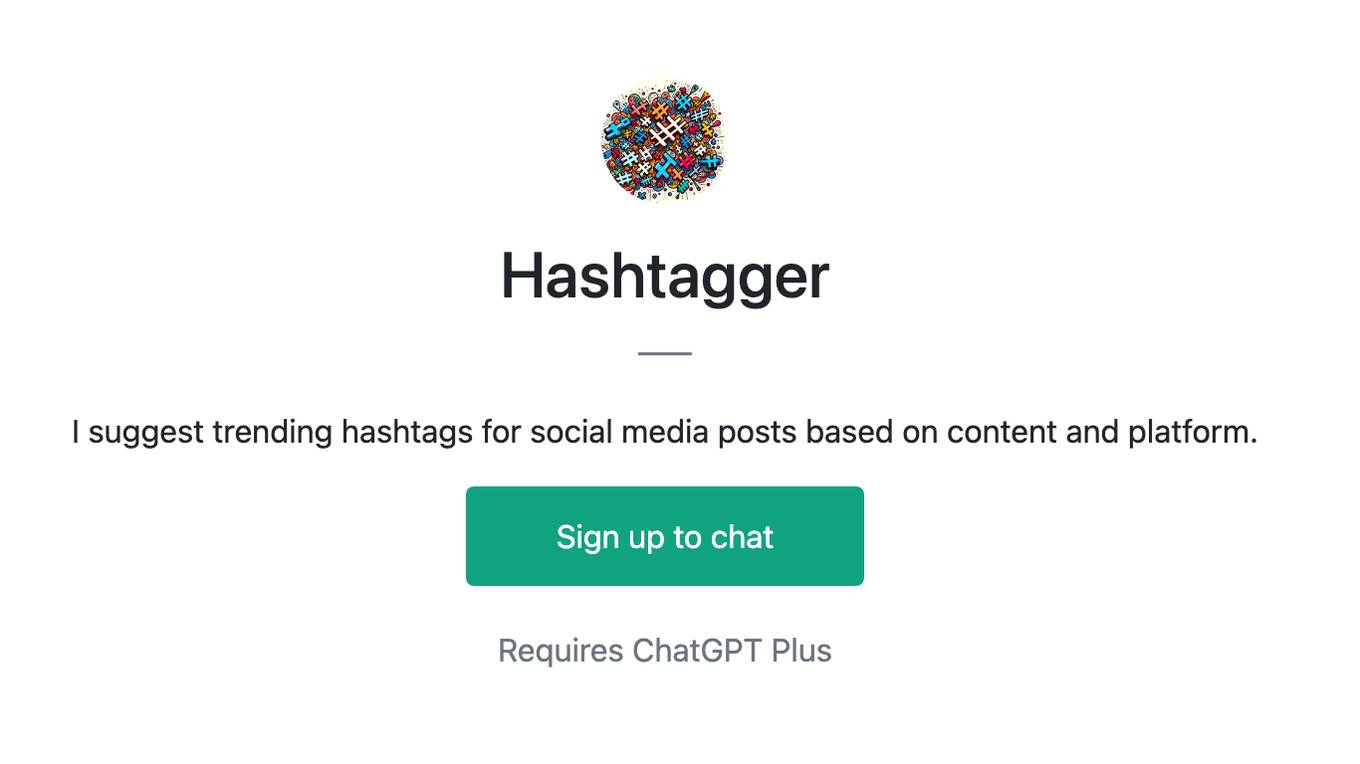
Hashtagger
I suggest trending hashtags for social media posts based on content and platform.
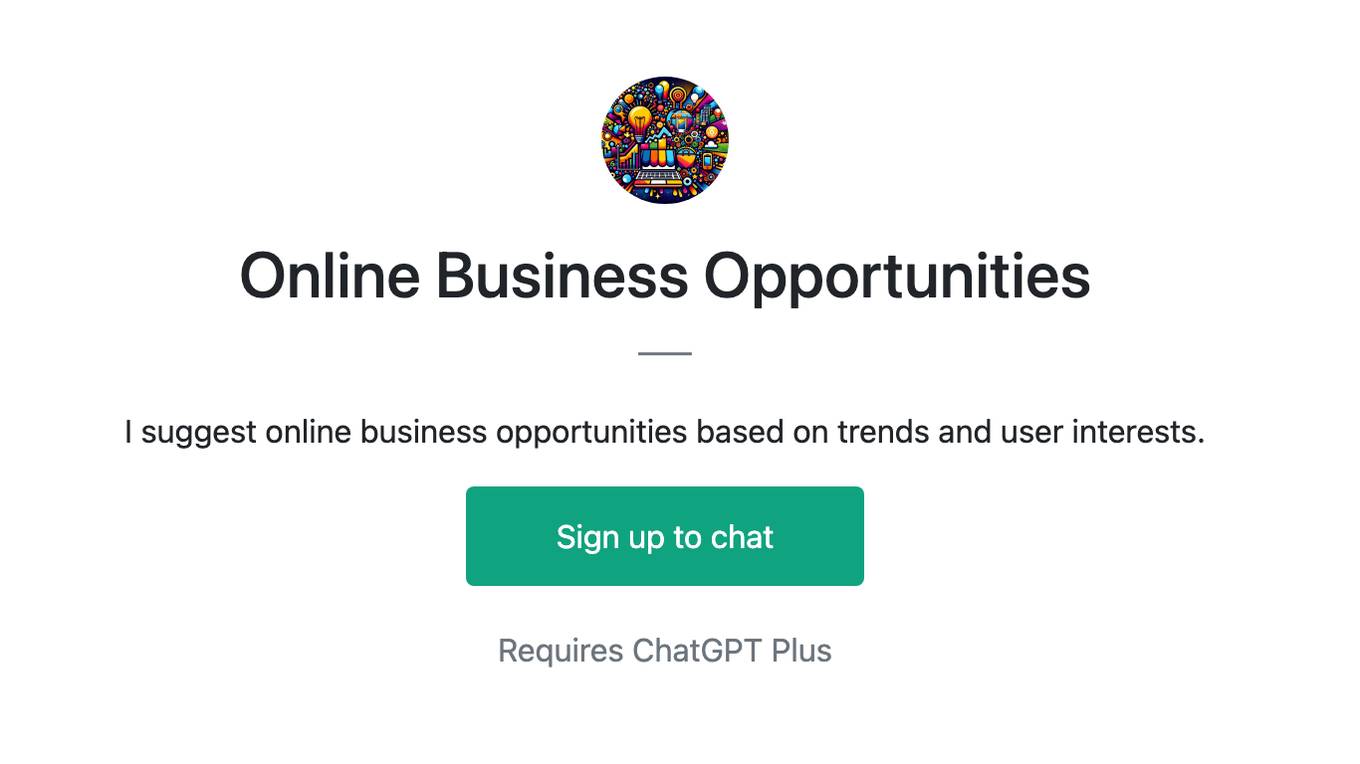
Online Business Opportunities
I suggest online business opportunities based on trends and user interests.

DrinkinGPT
I'll suggest drinking games for you and your friends to get a (un)forgettable night 🍻✨

Fishing Saying (釣りの名言)
I will suggest a fishing saying to help you with your feelings.(あなたの気持ちに寄り添って、釣りの格言を提案します。)
